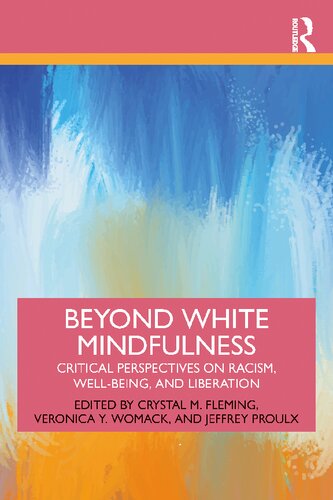

Most ebook files are in PDF format, so you can easily read them using various software such as Foxit Reader or directly on the Google Chrome browser.
Some ebook files are released by publishers in other formats such as .awz, .mobi, .epub, .fb2, etc. You may need to install specific software to read these formats on mobile/PC, such as Calibre.
Please read the tutorial at this link. https://ebooknice.com/page/post?id=faq
We offer FREE conversion to the popular formats you request; however, this may take some time. Therefore, right after payment, please email us, and we will try to provide the service as quickly as possible.
For some exceptional file formats or broken links (if any), please refrain from opening any disputes. Instead, email us first, and we will try to assist within a maximum of 6 hours.
EbookNice Team

Status:
Available4.7
8 reviewsBeyond White Mindfulness: Critical Perspectives on Racism, Well-being and Liberation brings together interdisciplinary perspectives on mind-body interventions, group-based identities, and social justice. Marshaling both empirical data and theoretical approaches, the book examines a broad range of questions related to mindfulness, meditation, and diverse communities.
While there is growing public interest in mind-body health, holistic wellness and contemplative practice, critical research examining on these topics featuring minority perspectives and experiences is relatively rare. This book draws on cutting edge insights from psychology, sociology, gender, and critical race theory to fill this void. Major themes include culture, identity, and awareness; intersectional approaches to the study of mindfulness and minority stress; cultural competence in developing and teaching mindfulness-based health interventions, and the complex relationships between mindfulness, inequality, and social justice.
The first book of its kind to bring together scholarly and personal reflections on mindfulness for diverse populations, Beyond White Mindfulness offers social science students and practitioners in this area a new perspective on mindfulness and suggestions for future scholarship.